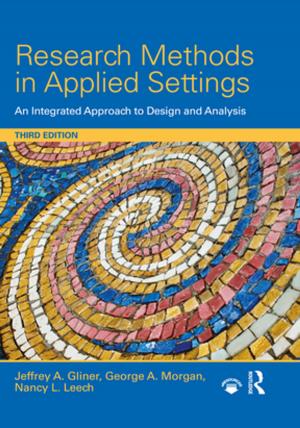| Author: | Constance Meinwald | ISBN: | 9781136184420 |
| Publisher: | Taylor and Francis | Publication: | May 5, 2016 |
| Imprint: | Routledge | Language: | English |
| Author: | Constance Meinwald |
| ISBN: | 9781136184420 |
| Publisher: | Taylor and Francis |
| Publication: | May 5, 2016 |
| Imprint: | Routledge |
| Language: | English |
In this engaging introduction, Constance Meinwald shows how Plato has shaped the landscape of Western philosophy. She provides much-needed historical context, and helps readers grapple with Plato’s distinctive use of highly crafted literary masterpieces for philosophical purposes.
Meinwald examines some of Plato’s most famous discussions of human questions, concerning erōs,the capacities and immortality of our psyche, human excellence and the good life, and Plato’s controversial ideas about culture, society, and political organization. She shows how Plato makes a sketch of his theory of Forms foundational in this work, and she offers illuminating readings of texts concerned with the development of the theory and its relationship to Greek science and mathematics.
Throughout, Meinwald draws expertly on Plato’s dialogues to present a lively and accessible picture of his philosophy.
Including a chronology, glossary of terms, and suggestions for further reading, Plato is an ideal introduction to arguably the greatest of all Western philosophers, and is essential reading for students of ancient philosophy and classics.
In this engaging introduction, Constance Meinwald shows how Plato has shaped the landscape of Western philosophy. She provides much-needed historical context, and helps readers grapple with Plato’s distinctive use of highly crafted literary masterpieces for philosophical purposes.
Meinwald examines some of Plato’s most famous discussions of human questions, concerning erōs,the capacities and immortality of our psyche, human excellence and the good life, and Plato’s controversial ideas about culture, society, and political organization. She shows how Plato makes a sketch of his theory of Forms foundational in this work, and she offers illuminating readings of texts concerned with the development of the theory and its relationship to Greek science and mathematics.
Throughout, Meinwald draws expertly on Plato’s dialogues to present a lively and accessible picture of his philosophy.
Including a chronology, glossary of terms, and suggestions for further reading, Plato is an ideal introduction to arguably the greatest of all Western philosophers, and is essential reading for students of ancient philosophy and classics.















